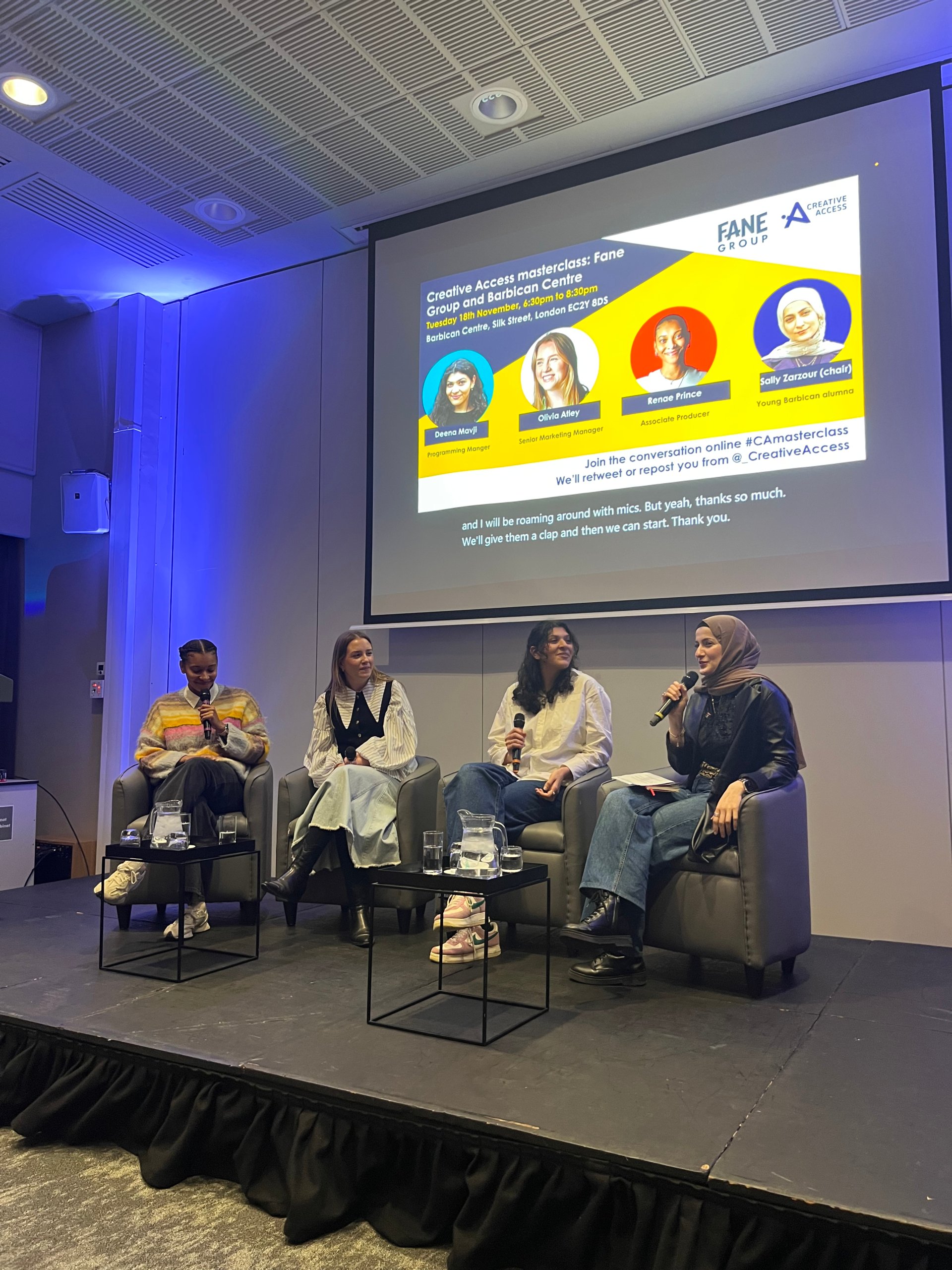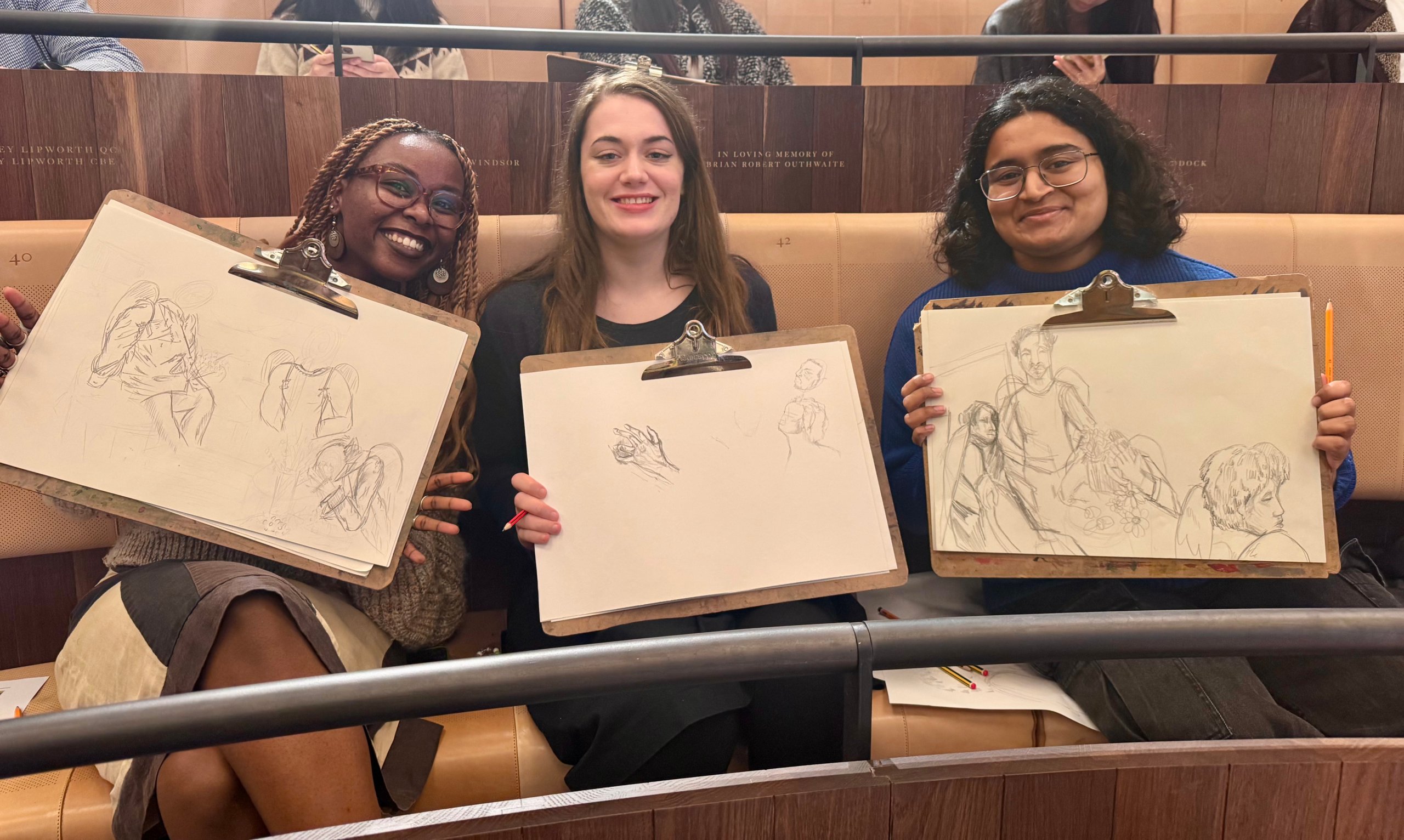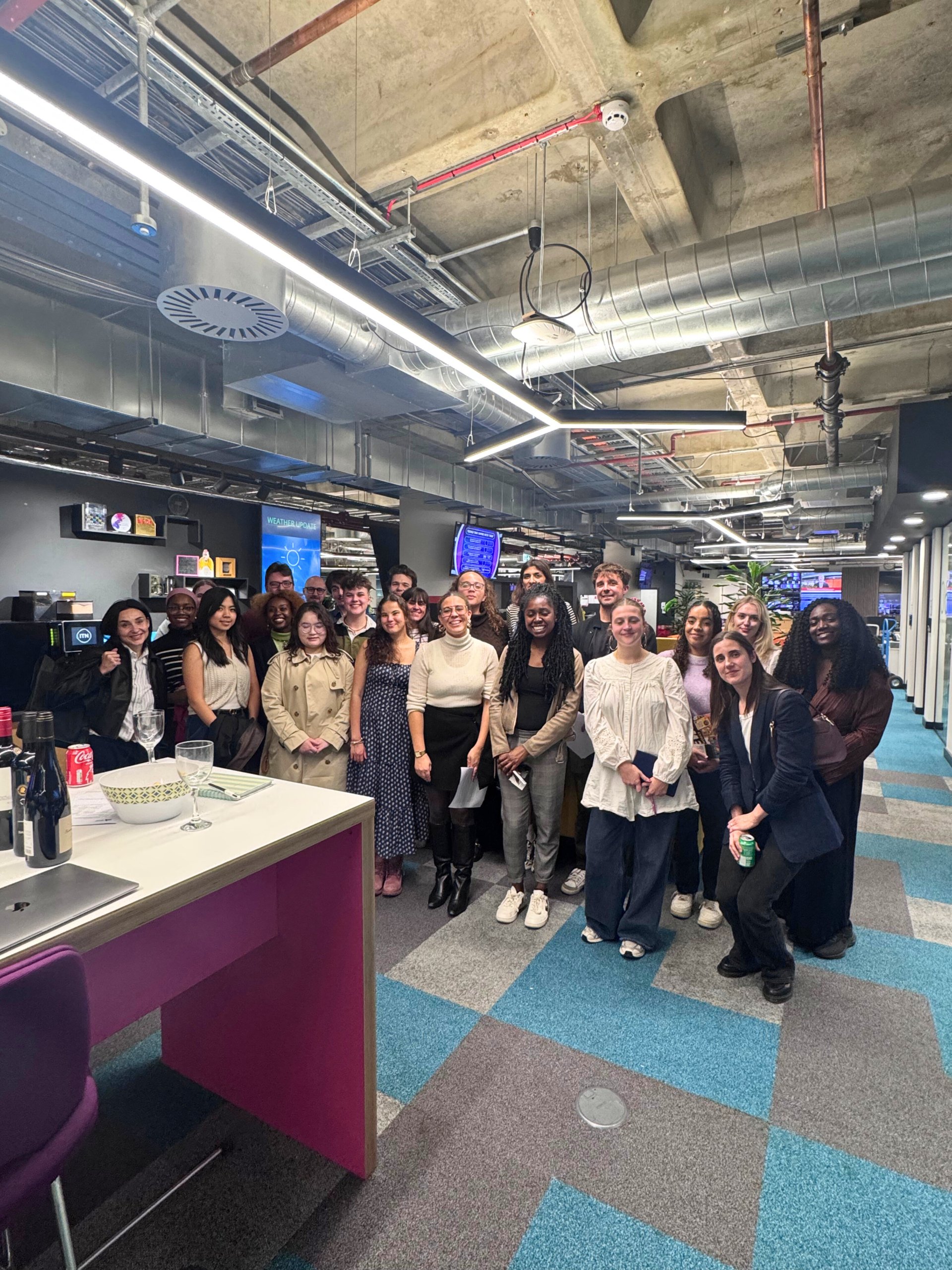Creative Access’ latest Masterclass coincided with Mental Health Awareness Week (9th – 16th May), and we were joined by a brilliant panel to discuss all things related to mental health, wellbeing and putting yourself first. The official theme this year was loneliness, and how it can produce feelings of depression, sadness, and isolation, especially after three long years of being in and out of lockdowns. With this masterclass, we aimed to raise awareness, encourage initiative, and invite discussions that might be uncomfortable to hear, but necessary to have. Yasmin Hemmings, our programme manager, sat in conversation with Kamilah McInnis, a senior journalist at BBC News podcasts, as well as Sam Bickley, TV consultant, exec producer and welfare executive, and began the conversation we hope many of you will continue in within your family, friends, and workplaces.
Kamilah McInnis“Communication is Key”

Prioritizing your mental health isn’t always easy. Sometimes it may come as a shock that you might be struggling, but 1 in four adults experience issues with their mental health, making it a lot more common than you might think. When asked about their top tips on how to put your mental health first, Kamiliah, currently working on the podcast “If You Don’t Know” which focuses on informing young black adults of politics, culture and much more, spoke of the importance of knowing when to say no. Often, with those who have just begun their career in the creative industry, there can be a desire to try hard to prove their worth with their new company. This could involve staying after work hours, not taking adequate, full breaks, or simply saying yes, when really you should be saying no. It’s vital to understand that none of these things will be sustainable in the long run, and will certainly leave you burnt-out and unable to do your job to the best of your ability. Sam agreed, advising taking walks, as well as regular breaks away from computer screens to calm the mind and reset your focus.
Sam Bickley“Find the self-care that suits you”
When discussing mental wellbeing, there can often be a one-size-fits-all approach on self-care. Lighting a candle won’t always fix everything, and our panel spoke about finding what works for you. Sam herself is an advocate for “self-care in the day, and self-care in the week,” sharing how important it is to find things you enjoy that can fit around the diary. Maybe the candle will work for an evening and keep you going till a fantastic new play you’ve booked to see that weekend, or a day trip you have in a fortnight – it’s important to set things up for yourself. In addition to this, Kamilah adds that it’s important to “take holiday every few months!”, a right we are all entitled to, but many forget. A few days away from work can do the world of good, helping you get back to your normal self. Communicating this need to your workplace can be daunting, but is better than the alternative. Your manager will really appreciate your honesty about your capacity. “No” doesn’t mean you aren’t capable, it can also mean yes, but I will get it done tomorrow, which is just as good.
Sam Bickley“Think about your network, do things together”

For those who are still job searching, we understand what a tiring process that can be. It might seem like you are getting nowhere, but you can’t give up. When speaking about the strength in kindness, Kamilah shared a sweet story of her days as a BBC multi-media trainee (a role secured by Creative Access!), and how when her contract came to an end, she felt anxious about her next career move, and whether she would find anything at all. As she wandered outside her offices, trying to clear her head, she looked down and saw some free flowers, a sign to persevere that in a roundabout way, lead to her next role. Although the lesson here is rooted in goodwill, it is also a testament to not giving up, and even more than that, to taking your breaks! Sam also added how useful it is to “think about your network,” doing things together and bouncing off each other’s ideas can really propel your applications. Especially for freelancers – get a friend’s opinion, or even a mentor, who can offer their advice and guidance. It can be easy to apply for everything, but really hone in on what you want from your work, what kind of industry you would like to go into, and that passion and determination will jump off the page in your applications.
Sam Bickley“Find quiet spaces to ground yourself, remember that you’re awesome”

Networking is nerve-wracking for people already struggling with anxiety. For this, our panel spoke of the power of preparation. Kamilah, when really struggling, tells herself to just “go for an hour” to an event. Once the hour is up, you can leave, but you might just find yourself having so much fun you’d like to stay. You can try and prepare conversation starters and do some research on who will be there, and the work they have done is a great place to start. However, if you are really not well, don’t force yourself to go, instead perhaps draft a message explaining that you would’ve loved to attend, but were unable to, and try and connect with that person via LinkedIn orother appropriate social media. Sam said it is also completely fine “to let people know you’re feeling a little nervous,” because there is a lot of strength that comes with that honesty. Yasmin added how useful joining networking groups like “Young People in the Arts” was. Rest in the fact that you are amazing, and not meeting someone, or going to an event does not mean the end of your career – you just might need to get a little more imaginative about how you strategically place yourself in that important person’s line of view.
Kamilah McInnis
“No one can be on their A game all the time”

When asked how to bring her best self to work, Kamilah had loads of top tips. “We are all works in progress,” she says smiling, before admitting that she still has down days, but with experience, time, and counselling (which she recommends), it becomes easier to deal with. The 4-7-8 breathing technique is great for calming yourself down during those sudden panic bursts, or just before a big meeting, as well as the book Feeling Good, by David D Burns, which discusses numerous coping techniques, including how to rewire those negative thoughts. More often than not, you can feel an episode brewing, Kamilah warms to pay attention to this, and let your team know. Yasmin encourages a routine with exercise, and Sam journaling, as “being a companion to yourself” can provide a sense of clarity that can be beneficial. “You control how your day looks” she continues, set boundaries with your workplace, for example mentioning that your workday must finish at a certain time, and you can’t exceed that. Other tips included writing lists, breaking down tasks into chunks and always keeping your managers in the know.
Kamilah McInnis“I was told to keep my depression a secret, and that people wouldn’t hire me because of it, things have changed”
There is so much more support now for those dealing with mental health struggles. Sam notes how the younger generation’s openness about something once seen as taboo is breaking down barriers for those in the industry ahead of them. As a welfare executive, Sam’s role is proof that after tragedies within television, such as those on Love Island, and Jeremy Kyle, companies now understand more than ever the importance of aftercare. As someone who has always cared about her contributors and advocated for their needs, this change is needed and welcomed by Sam. Many workplaces now have mental health policies, and if you are curious about whether yours does, Yasmin says you are well within your right to ask. If there is not one, and it’s something you would like to help create, make this known too! Kamilah is part of a wellbeing group that is actively trying to change work culture, and often has executives sit in on meetings so they know what more they can be doing to support their workforce. It’s not a job that can be done by an individual, but it does take that one person to begin the conversation. Mental health is no longer a taboo; Be upfront with those who need to know.
Yasmin Hemmings“Be confident in the fact you have power to make change in your organisation”
People are willing to listen; don’t be worried about signposting useful information to your managers. Kamilah advises speaking to your colleagues and joining initiatives and groups. If you are a journalist, the National Union of Journalists (NUJ) is good at providing any information you might need. Sam adds to research dignity at work responses, which are quickly improving in comparison to five years ago. Above all, listen to your body, navigating mental health can be difficult, but you are not alone in this. Reach out and speak out if you need help.
Please do watch a recording of this masterclass here.
You can also read our resource on how we support our team’s mental wellbeing here.




